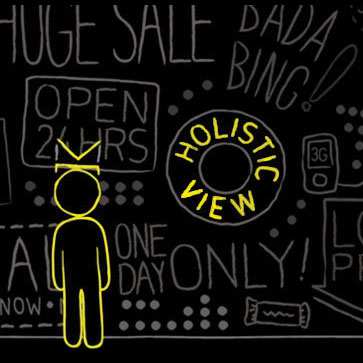Advertisers Want More Rich Media for Less Hassle

For most Internet advertisers, rich media ads represent the future of the industry, particularly when it comes to mobile advertising.
Now we have the numbers to prove it, as a recent survey by the multi-screen interactive platform provider Jivox found that rich meda advertisements are in high demand, although many ad agencies worry about the complex technical requirements of delivering them across screens.
The survey, which includes responses from 100 employees from "leading ad agencies" in a variety of job roles (from media buyers/planners to creative to account management), found that over half (51 percent) of agencies have reported an increased in client demand for dynamic rich media ads. In addition, another 20 percent said they expect that demand to rise this year.
Jivox pointed to two primary reasons for this growing demand. The first is rise of standardized ad formats, such as the Interactive Advertising Bureau's Rising Stars ad units. The other is a steep decline in interest about static ads, which Forrester noted last October had dropped by nearly 45 percent in just two years.
However, despite their excitement and interest in rich media, these same advertising professionals (or 88 percent of them, at least) are finding the ads to be a "very stressful process." Plus, another 42 percent said that running the ads across multiple screens was a "painful process." 15 percent didn't even bother to try. This is significant because the ability to run rich media ads on a variety of devices is becoming more and more important, since 69 percent of all Internet users now access the Web on mobile devices, so if these digital ads don't render properly, it will have a significantly negative effect on impressions and overall campaign returns on investment (ROI).
"The influx of mobile devices has created new challenges and frustrations for advertisers," said Jivox CEO Diaz Nesamoney. "These findings show that we need to move to the next generation of ad platforms that are adaptive, real-time and more efficient - only then can we alleviate some of the stress that traditional rich media causes."
The report also found that 66 percent of respondents would recommend more rich media campaigns if production times and costs were cut to half of what they are now, and of the five percent that aren't running rich media campaigns, half of them said it is because they're to expensive and cumbersome. In fact, 31 percent said they "almost always" experience delays due to last minute creative changes or ad production, while 62 percent said they sometimes experience delays.
So, it would seem that widespread rich media ad adoption still isn't here just yet, but as they become increasingly user-friendly and less expensive, as well as more easily adaptable for mobile devices, expect to see them more and more.









